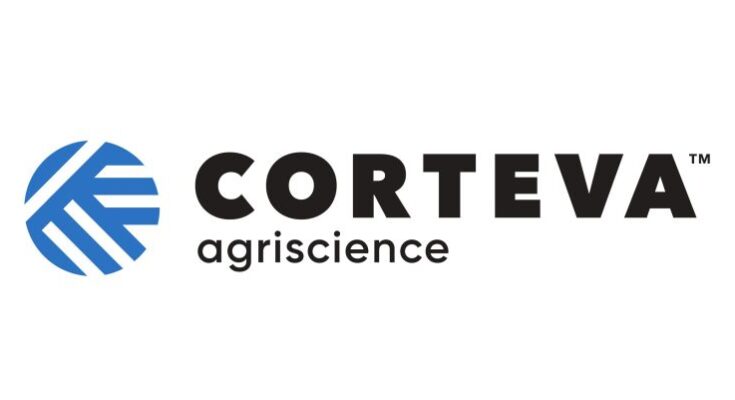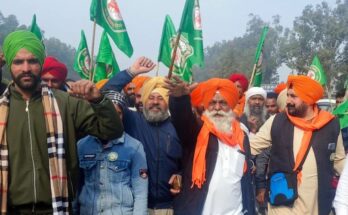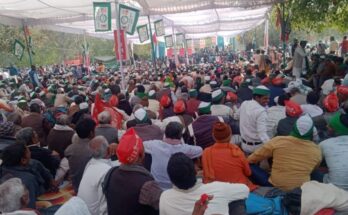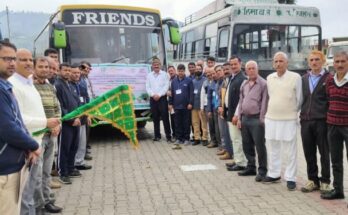Hyderabad: Corteva Agriscience has launched 2022 Climate Positive Leaders Program, in India. The first phase of the programme launched in 2021 is a nomination-based farmer recognition initiative created to highlight early adopter producers who are successfully implementing, scaling up, and promoting climate positive practices. In its first year in India, the programme aims to honour the Indian farmers who have made a measurable impact in advancing climate positive agriculture and share their stories for the benefit of farmers and all food system stakeholders around the world.
The initiative will provide the global and regional leaders who have been chosen with the means and chances to widely share their experiences and accelerate the adoption of practices that are beneficial to the climate. The nomination window will close on November 30, 2022.
The nominations will be judged and evaluated by a panel of agriculture industry leaders based on the criteria of the programme. They will select up to number 10 Global Leaders and 12 Regional Leaders. Along with India, there will be participants (farmers) from other countries including Argentina, Australia, Brazil, Canada, France, Germany, Ireland, Kenya, New Zealand, Spain, Sweden, United Kingdom and United States. These farmers can be nominated by local or regional grower associations, nonprofit organisations, academic institutions, field or sales representatives, or other technology partners.
You may also like to read: Centre asks Punjab, Haryana, UP and Delhi to strive for zero stubble burning
Speaking on the Climate Positive Leaders Program, Gurpreet Bhathal, Director Marketing – South Asia, Corteva Agriscience said, “Corteva Agriscience has been working diligently to provide the innovative seed, crop protection, digital technology, and agronomy expertise to help farmers adopt sustainable on-farm practices. India is a key growth market in the agriculture sector, however, in the last few years outcomes of climate change have been adversely affecting the harvest and farmer livelihood across the country. There is an urgency to create a sustainable agriculture ecosystem with new ways not only to reduce the carbon footprint of farms but also to address the welfare of the farmers.”
“With the launch of this programme in India, we aim to recognise outstanding farmers who are effectively improving climate positive agriculture while fulfilling their yield and productivity targets. Enable them with a forum to share their stories and inspire more farmers to adopt climate positive farming,” Bhathal added.
You may also like to read: DeHaat conducts litchi farmers’ awareness program in Vaishali, Bihar
In addition to training and in-person participation in a Global Farmer Roundtable, the Global Leader award recipients will receive a lifetime membership to the Global Farmer Network (GFN). GFN, established in 2000, identifies, engages and supports strong farmer leaders from around the world who can work with others to innovate, encourage and lead as full stakeholders in the work that is being done to fill the world’s food and nutrition security gap in a sustainable manner. Recipients of the Regional Leader award will be given virtual training and acknowledged as GFN fellows. Both global and regional leaders will have the chance to interact with key figures in agriculture and will be able to use a worldwide platform to communicate with other farmers about their experiences.
Some of the winners from 2021 sharing their positive experiences
Kristjan Hebert, Canada
Kristjan Hebert is a farmer in Fairlight, Saskatchewan who applies no till, variable rate input management, cover and rotational cropping to produce of canola, fall rye, malt barley, hard red spring wheat, oats, and peas. Kristjan began applying climate positive practices such as zero till nearly 30 years ago, adding field peas and fall rye as cover crops within the past six years, and most recently working with family in the livestock industry to share silage in trade for manure. His entire operation leverages variable rate input applications based on a 4-acre grid system. In addition, nitrogen is treated to ensure no gas is emitted into the environment.
Kristjan attributes his variable rate input management and grid-based annual testing to delivering a five to seven per cent increase to his bottom line, with zero till and seed genetics providing even further yield positive impacts. He advocates heavily with farmers and others in the agriculture on the overall environmental benefits of climate positive practices.
Felix Kili, Kenya
Felix Kili is a farmer in Eldoret, Rift Valley, Kenya, using minimal tillage and crop residue preservation techniques that retain moisture for primary crops including maize, barley, wheat, and oilseed rape, as well as cover crops such as sun hemp, sunflower, and canola. In 2005, Felix, his father and brother stopped burning crop residue to increase organic matter in the soil. Transitioning to vertical tillage has reduced erosion and helped retain moisture. Constructing terraces throughout the fields allows the Kilis to reduce water runoff and enable water collection, improving yields each year and guarding against extended drought.
The additional crop residue has significantly improved soil health, supporting biological life in the soil such as earthworms, and reducing fertiliser dependency. Cover crops have also increased the population of bees and other beneficial insects. Overall, Felix has seen a 17 per cent increase in yields while production cost has decreased significantly.





